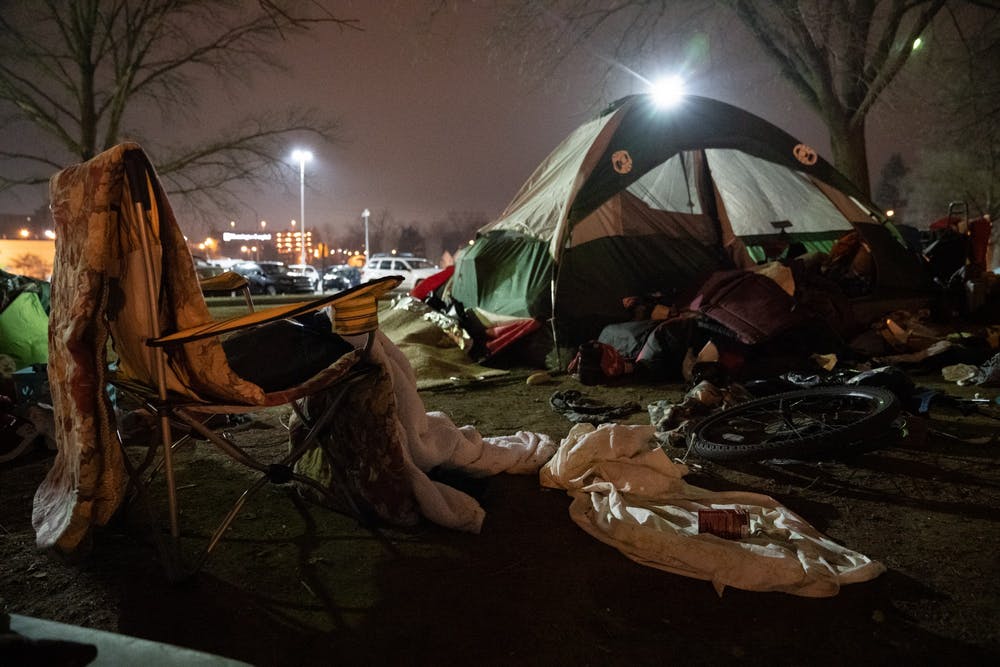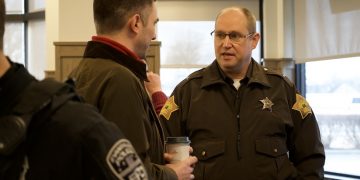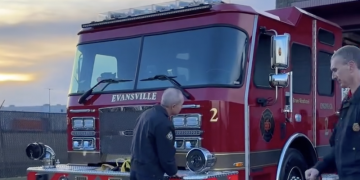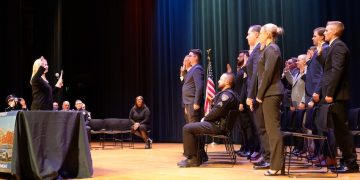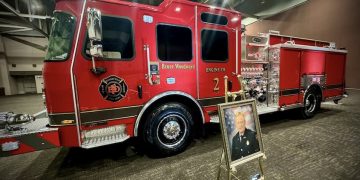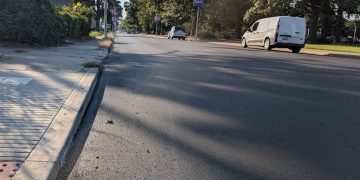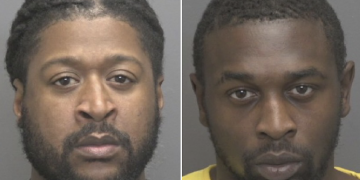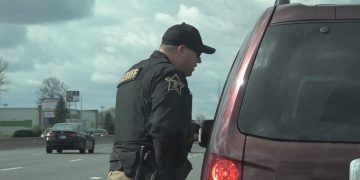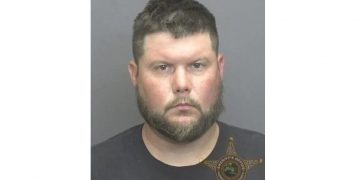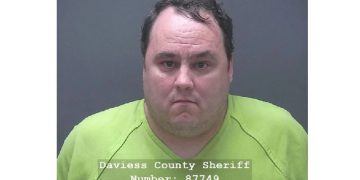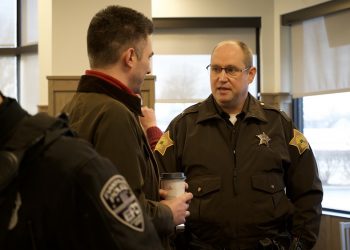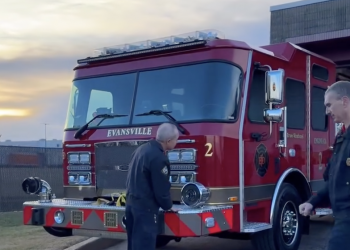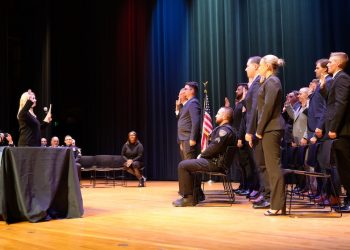Thursday night, Bloomington Police Department personnel and city employees evicted two people experiencing homelessness who had been staying at Seminary Park. Others who had been staying in the park left earlier in the day when police arrived.
The eviction, which was expected Monday night, didn’t begin until after 11 p.m., at which time people would have needed a permit to stay. Thursday afternoon, police moved items from the encampment such as tents away from the public right of way. About 20 people had been staying overnight at the park in mid-December, according to the city, and about 15 last weekend.
The city had paused enforcement of an ordinance that requires anyone setting up tents in a public space between 11 p.m. and 5 a.m. to have a permit due to the COVID-19 pandemic. But the rule is being implemented again as of early December, despite the ongoing pandemic.
Related: [Police move items from Seminary Park encampment out of right of way, eviction date still unclear]
Police officers walked to the tents scattered across the park around 11:20 p.m. Thursday, telling the people in them they had to leave. As the cops walked from tent to tent, a crowd of more than 15 people followed them around, many of them yelling, “go home,” and “fuck 12.”
About 30 members of the community gathered at the park in support of the unhoused population, including some from Wheeler mission, members of the Bloomington Homeless Coalition and other protestors.
At least 20 police officers were present, some watching the crowd while others dragged tents to the utility trailers.
As police continued to take down the tents, someone yelled, “You all really came here to take away people’s only home.” Another shouted, “They all get to go home to their warm beds tonight.”
A Bloomington resident who goes by Aries lived at Seminary Park until Thursday’s eviction. He said he was frustrated by being forced to leave and the lack of empathy for people experiencing homelessness. He said those living in the park all left peacefully because they feared getting arrested and they wanted to protect their belongings. For many, what was in the park was everything they owned, he said.
After the police officers left, sleeping bags and bicycles were still dispersed across the park, a light rain drizzling on them in the mid-30 degrees weather.
“Now it’s all thrown on the ground fucking getting frozen, getting wet, getting ruined, getting rusted, getting destroyed,” Aries said.
Aries said he has a survival mentality of making it to tomorrow. But he’s tired of making it to tomorrow when no one has faith in people experiencing homelessness, he said.
Marc Teller, a board member of Bloomington Homeless Coalition, said he was angry and frustrated by the city’s actions.
“This is how we treat poor people in this country,” he said.
He said the recent evictions would lead to a dispersal of the unhoused population, making it more difficult for those trying to help to reach them. Teller said he’s worried someone will freeze to death.
“It’s the same thing that happened last time,” he said. “And last time somebody died.”
Related: [‘Nothing but a ruse to get what they wanted’: Bloomington residents react to Seminary Square Park homeless camp clear out]
Two members of Bloomington’s homeless community died in late December. One man, JT, reportedly froze to death. Teller said JT’s tent was taken during the Dec. 9 eviction.
After officers removed almost every tent Thursday night, a crowd of people stood in a circle around one tent where a man refused to leave. Teller said the man was experiencing a mental break. After negotiating with the officers, a decision was reached that the man would remain in the tent with two volunteers who could assure he was safe and in the morning the volunteers would help him get mental health help if he wanted it.
As the officers prepared to leave, they corralled the crowd onto the sidewalk and off the grounds of the park. People began dispersing, leaving behind what, for some, was the only home they had known for months.
The city’s decision to dismantle the encampment came after months of tension and grief in Bloomington’s homeless community. The city began clearing out the homeless camp — or threatening to — in early December, and two people experiencing homelessness died later that month.
City officials have said they’re concerned about people experiencing homelessness being out in the cold, but the Centers for Disease Control and Prevention advises encampments such as those in Seminary Park be left alone. If individual housing options are not available, the CDC recommends allowing people who are unsheltered to stay where they are.
Teller told the Indiana Daily Student last week that the city shouldn’t force people out of the park because there aren’t enough places for them to go.
“When the city says that we have beds for these people, they have beds, but these people aren’t welcome to use them,” Teller said, referencing the different requirements some shelters have. “Not all of them.”
Some shelters in Bloomington require sobriety or government-issued identification for people to be housed there.
City officials have said there are enough beds available to shelter the people staying at Seminary Park, but Beacon, an organization that oversees programs to provide resources to people facing poverty in Monroe County, has questioned the accuracy of that count.
Thursday, the belongings of people staying at the park were gathered and loaded onto trailers. Items will be taken to overnight storage at the Switchyard Park maintenance building. The city will not hold items for more than 30 days, according to signs posted in the park.
Dec. 9 was the first time since the pandemic BPD returned to enforce the 11 p.m. to 5 a.m. permit rule and dismantled the homeless encampment in Seminary Park. It took place the day after the Board of Park Commissioners voted against a policy change that would have prohibited camps on any city structure or property during the day without a permit.
Teller told the IDS in early January that many people experiencing homelessness had belongings damaged when police officers cleared the homeless camp and moved the items to a parks and recreation building in December. While they were able to reclaim their belongings, they had to call to schedule a time to pick them up, which Teller said was difficult because many didn’t have cell phones. It took about 24 hours for everyone to retrieve the items that weren’t broken, he said.
